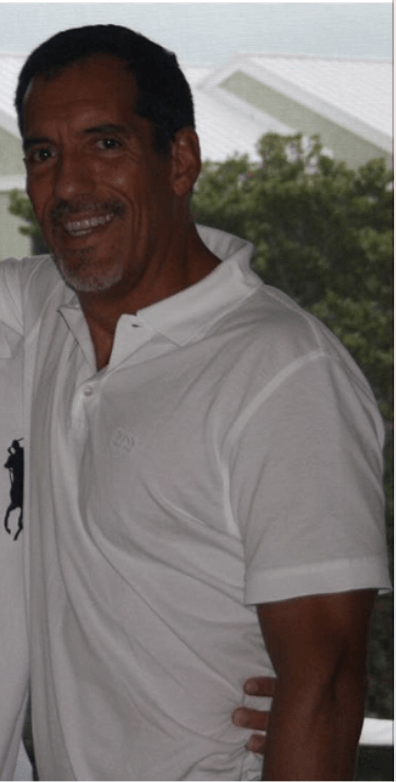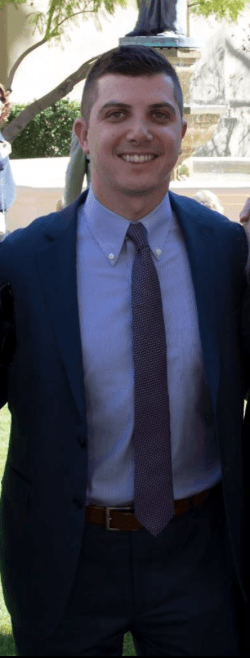Oscar Hidalgo is the President and Founder of Hidalgo Construction Company, Inc based in Miami Florida. He is a high-end custom residential home builder that caters to luxury homes varying between 8,000-20,000 square feet with construction budgets ranging from $3 million to $20 million. Ever since he was young, he has had a love for architecture from the creative end to the execution process of putting something together and watching it rise. The turning point of his appreciation for architecture and his business was watching the construction of an addition for his house when he was a young man on his own home.
He constructed a general business plan but mainly ‘did it on the fly.’ He started his profession working for a custom homebuilder and learned the trade from this one particular builder. As he moved on in his career he decided to start up his own small company with the main objective to try and contract only the amount of jobs he could properly manage and supervise. He decided that 5-6 homes at once was a good idea while properly managing and maintaining a high quality control level. His target market would include affluent customers that are looking to build very high-end projects where quality is the objective and not so much cost.
Mr. Hidalgo believes it is necessary to have a business plan in order to develop a budget, plan of action, and target market to see if the business is going to be profitable as well as how long it will take to become profitable. He also added, ‘You got to be able to do a cash flow analysis to understand at what pace or rate you will be generating a certain amount of income which is generated through one’s business plan.’
There were three pieces of advice he had to offer for developing art entrepreneurs. He first suggested that if one feels confident and convinced about one’s own business plan, to just go for it and believe in themselves. Secondly, one should develop a detailed and effective business plan in order for one to analyze where and what expenses are going to be. He ended with his last piece of advice to be honest and true to one’s investors.
Michael Quigley is the co-founder of Quigley Custom whose business is run through Dallas, Texas. Quigley and his brother make custom-fit clothing which is all e-commerce based; specifically dress shirts and suits. After taking their customers’ measurements and creating a 3D image of their body, they use a high tech laser-cutting machine to cut patterns into the suits and shirts.
As he went through law school and interned for different law firms, his interest for men’s clothing and suits grew. He bought his first custom suit from another company and was sold on the whole concept. It was only a matter of time that he would bring to the attention of his brother to move forward on his creative entrepreneurial business. Quigley came up with a general business plan to begin. His father had owned many businesses in the past and served as a mentor for him and his brother. He decided that his target market would be recent college students and young professionals who are trendy; specifically in their early 20s and early 30s.
When asked if having a business plan is necessary for entrepreneurship, Quigley responded, ‘It is necessary and definitely helps. You need to have a plan that states where you are going. It truly helps laying it all out to make sure it is feasible and makes sense. Otherwise you’re just chasing your own tail.’
His advice to developing art/ creative entrepreneurs is to clearly start by coming up with a detailed business plan before jumping into any entrepreneurial concept. Once accomplished, that individual should ‘jump in with two feet and be completely committed to his or her own idea.’ Fear must not be a factor for this step and one should always take chances while making mistakes because it is the only way we truly learn. Another piece of advice that Quigley addressed was to not jump into a business alone. When you have someone else invested in the business along your side there is less weight put on your shoulders. It lets you do more things in a better and more efficient way while spreading the workload and specific concerns the business might have.
Kyle Kelly is the founder of Sports Records. His business sells vinyl records containing his own music. These types of records are slowly making a come back in today’s world. He started his business ‘after noticing a niche in the market because there was limited to no record labels coming out of the United States that were pressing vinyl and saw it as an opportunity to make more money while selling his music and increasing his exposure.
Before Kyle started off his business, he came up with a general business plan that helped guide him in the right direction as well as specify his target market. His target market incorporates the underground techno music fans who are mainly found in Europe. The whole vinyl scene is huge within the continent since mainstream music is quickly declining over seas. Kyle says it is ‘100% necessary for an entrepreneur to have a business plan because it is easy to get lost in all the legal structures.’ He added that, ‘As soon as you start your business, you get a whole bunch of other ideas that could work but you might not have the budget for it which is a key part of a business plan.’ Not only is the budget within the plan but it also defines who you are in regards to the company’s values.
There are three pieces of advice he offered developing art entrepreneurs. First he said to always take risks. Without them, nothing will be achieved. Kyle added, ‘If you get your desired business up and off the ground, you will find out that your friends and family will support you the whole way through. The only one that can stop you is yourself.’ His second recommendation was to always stay true to one’s business’s values because it is easy to get deterred. ‘Not only will it make or break a company, it will also make a huge difference in your desired target market.’ Kyle’s last suggestion was to always be networking, especially with friends and family, when launching a business to gain as much support, as well as feedback, for more ideas and opinions. He also concluded with, ‘You must be able to juggle several tasks at once and you must be able to self-motivate yourself to keep it going, even when it’s not so fun. You have to absolutely LOVE what you are doing. If you don’t, you’ll get tired of the hard work and ups and downs very quickly.’
Interview Analysis
I truly enjoy the process of interviewing people whom I may, or may not, know about a subject I am currently learning about. It is fascinating hearing, learning, and analyzing different individuals’ views on a unique and complex subject like the field of entrepreneurship. I interviewed three art/ creative entrepreneurs in three distinct fields; architecture, fashion, and music. One thing they all had in common, besides being entrepreneurs, was their initial idea or vision of starting up their own business. However, it is how you act on it that counts. Diving in and becoming committed to one’s own vision is key to their success. Each interviewee made a leap of faith that was initially difficult and frightening. However, this fear should be overruled by that individual’s excitement, curiosity, and passion.
All entrepreneurs whom I interviewed had set up a general business plan before launching their own business. They all said it was necessary for several of reasons. For a company to succeed, there needs to be some sort of documented strategy of one’s potential vision and direction that provides a form of guidance to prevent deviation. The development of a budget, plan of action, and target market are key elements in order to see if one’s business is going to be profitable as well as the estimation time it would take.
There were three related themes that occurred through the interviews about starting a creative/ art entrepreneurial company. The first was ‘passion.’ Being passionate about your potential company gets you that much further. It makes one’s drive to succeed that much easier. The second theme is having as much support as possible. In order to achieve this, networking is important. Always be open to having conversations with others because down the road, he or she might help you out in a way or two. In addition, it can open the door to another relationship that might come in handy. Other individuals tend to expose different opportunities you may consider taking. Lastly, the theme of confidence plays a role in succession. There cannot be any sense of doubt within oneself. Your confidence is as good as your product. The more enthusiastic one is about their company, the more of an influence he or she can make. `







